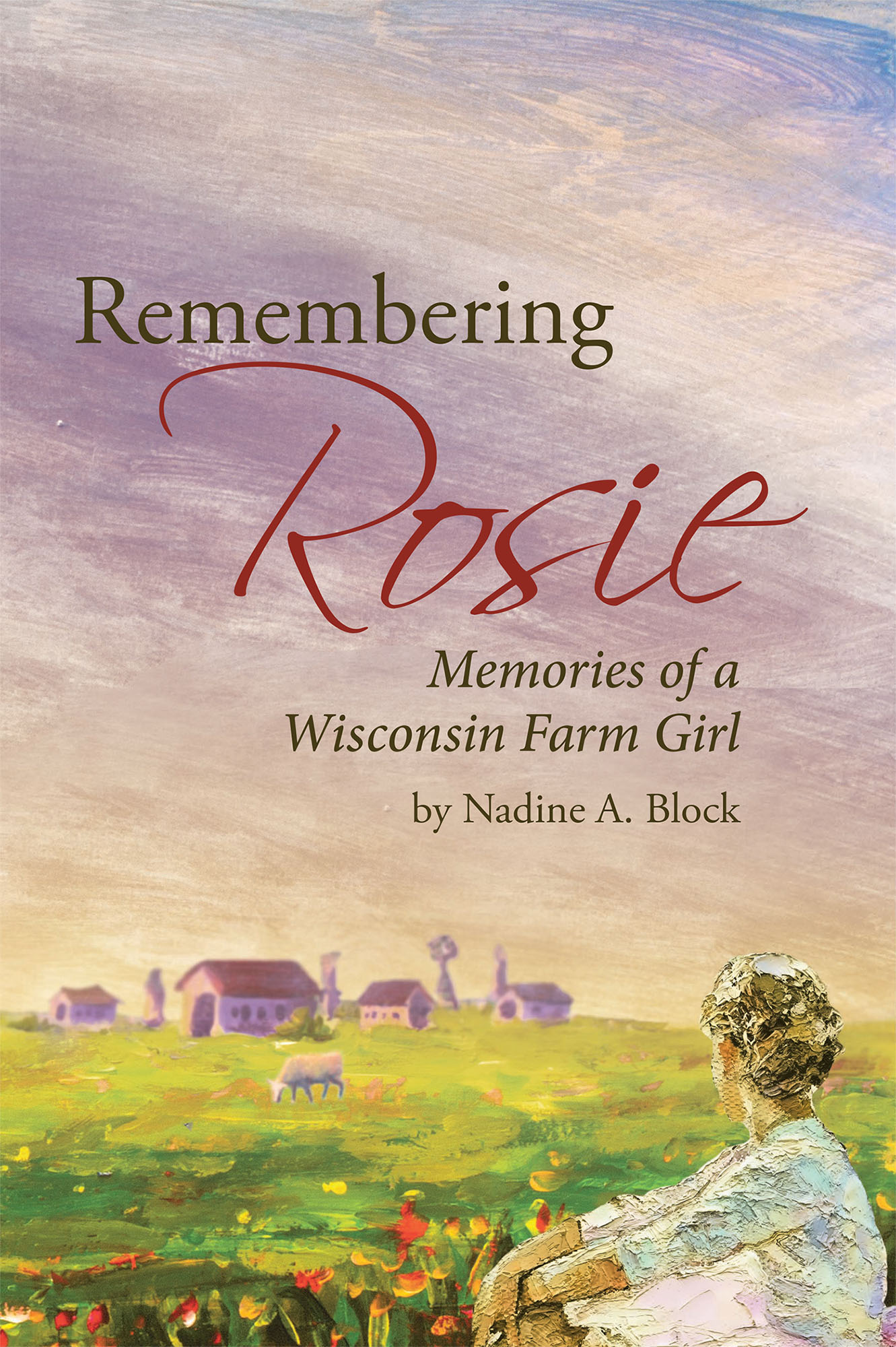
Block’s quest of going to college is not encouraged by her family and teachers and there is no money to help her. She is the oldest of five children and feels she must lead the way. Take a trip through the good, bad, and ugly of dairy farm living in the 1950s as the author looks back with nostalgia on the childhood she wished to escape.

“A tenderhearted and socially conscious memoir of dairy farming.” –Kirkus Reviews
“Nadine Block gives the reader a clear and engaging picture of Wisconsin farm life in the l950’s.”–Beuna Carlson, author of Farm Girl: A Wisconsin Memoir.
“Block’s charming and authentic memoir of growing up on a farm in rural Wisconsin is quickly becoming part of a lost era. Few family farms can exist; even fewer multi-generational farms still sustain a family or are expected to maintain future generations of those who want to make a living as farmers. The author has done her research of her German immigrant family, coming to Wisconsin in the 1880s, a little later than early settlers who arrived between 1830 and 1850 and became part of the USA in 1848. They settled in Taylor County, northern Wisconsin, where they carved out a home from forty-acres of rock-filled cut-over, tree stumps left by get-rich lumber barons. Often poignant and told with just enough detail to create vivid images, Block also uses family photos to enhance the script. Reading the book is like sitting down with a friend and paging through the family scrapbook. She shares the story of what it’s like to lose her favorite farm animal, the first time their home was “electrified” when she was four, and memories of her grandparents and their often gruesome morality tales which frightened her. One of my favorite parts was when Block enticed her mother to share some family history. “When she was in her eighties, I elicited Mom’s childhood memories by giving her a Brandy Old Fashioned. Once the lubricating spirits loosened her tongue, I captured a family secret on my tape recorder. I learned that my quiet, shy, and reclusive Grandma Barbara who seldom spoke English was a bootlegger.” Life was what it was—sufficient as in making one’s own soap and laundry detergent—and communal in 4H, neighborhood games, movie nights, and church. Block’s parents were progressives, and fought with the powerful farmer’s lobby to protect Wisconsin dairy products. Portraits of siblings and family members’ struggles with marriage, divorce, social issues, and isolation make the book particularly poignant. “My two older siblings and I, who are closest in age,” Block writes, “lived in a different world than the last two, Lynda and Lin. The oldest children grew up in the fifties, which were comfortable, hopeful, and secure. We were the tail end of the Silent Generation.” The family farm was sold in 1978 and none of the siblings remained in Wisconsin. Nevertheless, they have fond memories of the place that taught them time management, hard work, the value of money, and about death. Block’s story is told in a folksy way, fairly linear with healthy critical look-backs, interpretations, and occasional outside resources to remember the cost of items or general history. Remembering Rosie is a wonderful, intimate look at the changing landscape of rural family life and highly recommended for families, especially as an encouragement to capture your own family memories—the positive and not-so-happy—before they’re lost forever.”
-Lisa Lickel